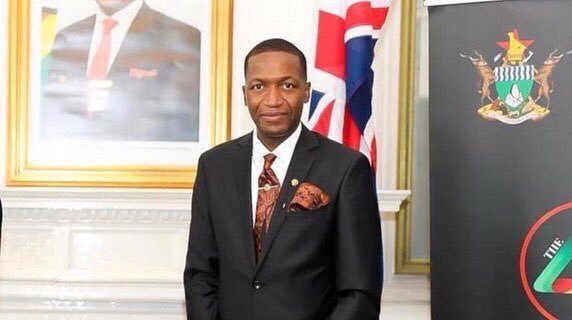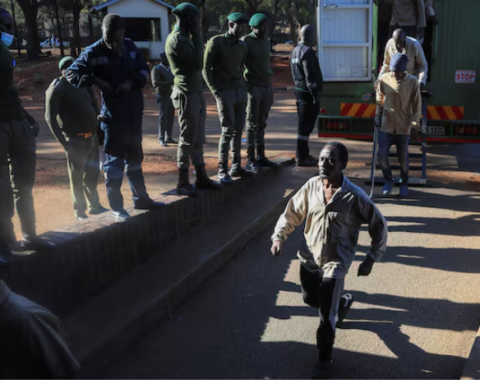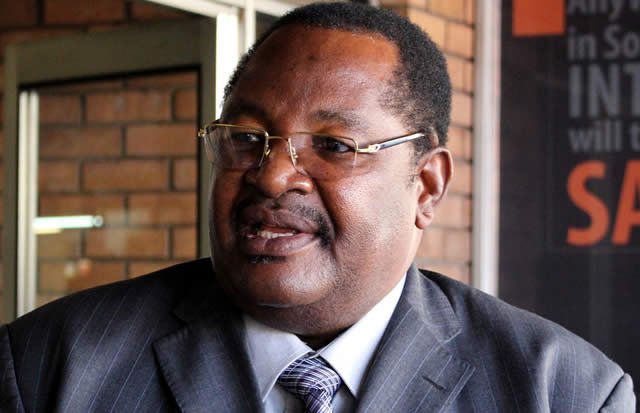Zimbabweans are currently facing an issue where they seem to only see wrong in black people and allow non-black individuals to exploit them. This is evident in the recent call for the arrest and asset freezing of Ambassador Uebert Angel, and the Zimbabwe Miners Federation President Henrietta Rushwaya, after their alleged involvement in a gold smuggling scheme was brought to light in a series of documentaries by Al Jazeera.
The documentary also reveals that 11 other Caucasian individuals have been involved in this illegal activity for years, but why is all the attention and anger directed towards Ambassador Angel and Henrietta Rushwaya? This is a clear example of selective anger, where non-black individuals are not held accountable for their crimes, and black individuals are targeted and punished.
One of the Caucasian kingpins, Mcmillan, has even admitted to smuggling gold for over 35 years, since the 1980s. However, Zimbabweans have gone all out to call for the arrest and assets freeze of one particular person Ambassador Angel. One is left to wonder if this were an American or British individual none black involved in this illegal activity, would the heavy sounds of plunder and looting would be heard. I would hazard to say not at all.
This double standard and selective anger is harmful and perpetuates the cycle of oppression and exploitation that Zimbabweans have been experiencing for generations.
It’s an unfortunate reality that in Zimbabwe, the success of black individuals is often met with suspicion and skepticism. There seems to be a prevailing attitude that wealthy black people must have obtained their wealth through corrupt or criminal means. This is a toxic mindset that not only undermines the accomplishments of successful black individuals but also perpetuates a culture of mistrust and division.
Ambassador Uebert Angel and his partner Henrietta have recently become the target of this toxic mindset, despite their success being built on years of hard work and dedication. They have been accused of involvement in a gold smuggling scheme, despite the fact that there is no evidence to support these claims. It’s important to note that the allegations against them have not been proven in a court of law, and they are entitled to the presumption of innocence until proven guilty.
However, this has not stopped many Zimbabweans from attacking them and calling for their arrest and asset freezing. It’s clear that there is a double standard at play, where successful black individuals are held to a higher standard than their non-black counterparts. If a non-black individual were accused of the same crime, it’s unlikely that they would face the same level of scrutiny and public condemnation.
This toxic mindset is harmful to Zimbabwean society as a whole. It creates a culture of fear and mistrust that makes it difficult for successful black individuals to thrive and for society to progress. Instead of tearing down successful black individuals, we should be celebrating their accomplishments and supporting them in their endeavors. We should be looking for ways to promote equality and create a society where success is celebrated, regardless of race or ethnicity.
It’s time for Zimbabweans to break free from this toxic mindset and start supporting each other. We need to focus on building a society that is based on trust, collaboration, and mutual respect. We can do this by promoting positive values, investing in education and healthcare, and working towards creating a society that is fair and just for all. Let’s move forward together towards a brighter future for Zimbabwe.
Zimbabwe, like many other nations, has a complex history of colonization, exploitation, and political turmoil that has left deep scars on its people. This history, combined with ongoing economic struggles, limited access to education and healthcare, and corruption, contributes to a sense of hopelessness and despair. This environment can lead to self-hate and self-deprivation, where people are repeatedly told that they are worthless and their dreams are impossible.
To address these issues, it is essential to focus on building stronger communities and creating systems that support people’s well-being and sense of agency. This requires investing in education and healthcare, combating corruption and inequality, and promoting values of compassion, empathy, and collaboration. Healing from generations of trauma and oppression is a long and challenging process that requires patience, compassion, and a willingness to listen to diverse perspectives and experiences. By working together and supporting each other, Zimbabweans can overcome self-hate and deprivation and create a brighter future for themselves and their communities.








